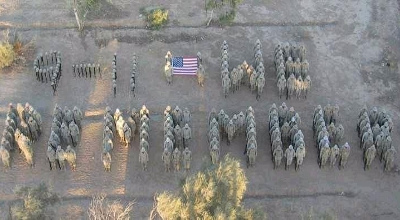Poll: Remembering 9/11 From a Youth Perspective
For adults, Sept. 11, 2001 was a terrifying day full of unknowns and horrifying images. But how do those who were young children feel about that day?
First, almost three-quarters of today’s teens (72 percent) remember finding out about the events of 9/11 on the day it happened. The events of that day, as well as the resulting aftermath, have changed the way they see the world compared to teens before the event, particularly regarding their trust and confidence in government.
There is a fear of terrorism as 42 percent of 13-18-year-olds say they are worried that terrorism will strike near them. Yet the number of teens who believe that the war on terrorism is a war the U.S. will win has dropped since shortly after the attacks, from 82 percent in December 2001 to 64 percent today.
These are some of the results of The Harris Poll 1,227 8-18 year-olds (465 8-12 year-olds and 762 13-18 year olds) surveyed online between July 13 and 21, 2011 by Harris Interactive.
The impact of the war on terrorism on the lives of today’s youth
Despite the recent killing of Osama bin Laden, teens today are less likely than those immediately after the attacks to believe that those responsible for the attacks will be found and punished (55 percent vs. 79 percent in September 2001).
However, 10 years without subsequent attacks has not gone unnoticed. More teens today believe that the U.S. will be able to prevent things like this from happening again (51 percent vs. 36 percent in September 2001) and fewer say that we need more security at places like airports and public buildings (51 percent vs. 77 percent in December 2001).
The impact of the war on terrorism continues to be felt in other areas of teens’ lives as well. One-quarter of teens today (27 percent) say they are less likely to travel by airplane as a result of the war on terrorism, a view shared by a similar number of teens three months after the attacks (26 percent in December 2001).
Hints of a generational shift in perspective is evident in the finding that more teens today say they are more likely to work hard at school as a result of the war on terrorism (26 percent vs. 16 percent in December 2001) and may even be more likely to listen to parental advice (22 percent vs. 16 percent in December 2001). However, the war on terrorism has lost its influence to spur charitable donations. While 42 percent of teens in December 2001 said that they are more likely to donate to a charity as a result of the war on terrorism, that level has dropped to 18 percent of teens today.
Youth’s trust and confidence in government
The events of 9/11 and its aftermath have also influenced how this new generation of teens views government. Today, fewer teens trust the government in Washington to do what is right in the war on terrorism (53 percent vs. 72 percent in December 2001 and 62 percent in July 2002) and fewer teens believe that the war on terrorism is a war the U.S. will win (64 percent vs. 82 percent in December 2001 and 72 percent in July 2002).
Belief that elected officials are making positive changes in their community did see a brief improvement immediately after the attacks, but has since dropped to pre-9/11 levels. In July 2001, one-quarter of teens (26 percent) agreed that elected officials were making positive changes in their community. In late September 2001, 38 percent of teens held this belief, but by July 2002 the levels had dropped to 27 percent—similar to the 25 percent who hold this belief today.
However, teenagers today are more likely than pre-9/11 teens to believe in the importance of engagement with the political process. In July 2001, half of teens (51 percent) agreed that it is important for people their age to get involved in the political process. This level rose to seven in 10 teens in the immediate aftermath of 9/11 (71 percent in September 2001 and 67 percent in December 2001). Today that level has decreased a bit from those peaks, but is still higher than before the attacks, with 59 percent of teens agreeing that it is important for people their age to get involved.
The war on terrorism has shown its toll on this generation as well. One-third of teens today (34 percent) say that the war on terrorism has made them less optimistic about their future—twice as many as said this in December 2001 (16 percent). In addition, more teens today say that the war on terrorism has made them less likely to enlist in the armed forces when they are old enough (48 percent vs. 35 percent in December 2001).
So what?
As today’s teens near voting age, elected officials should take note of both this generation’s decreased confidence in government and their increased belief in the importance of being involved in the political process. This generation seems poised to have a distinctive worldview, framed by lowered optimism for themselves and the country. Recent events in Washington probably have not helped increase any confidence in government, but as today’s teens grow into tomorrow’s voters, now is the time for politicians to reach out to this age group.















































